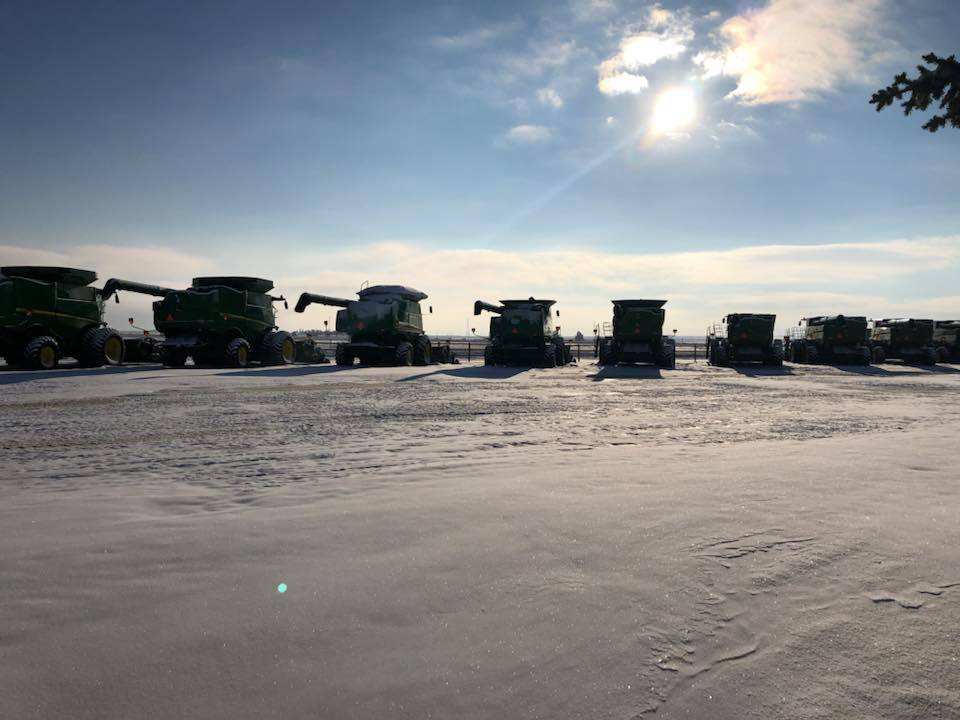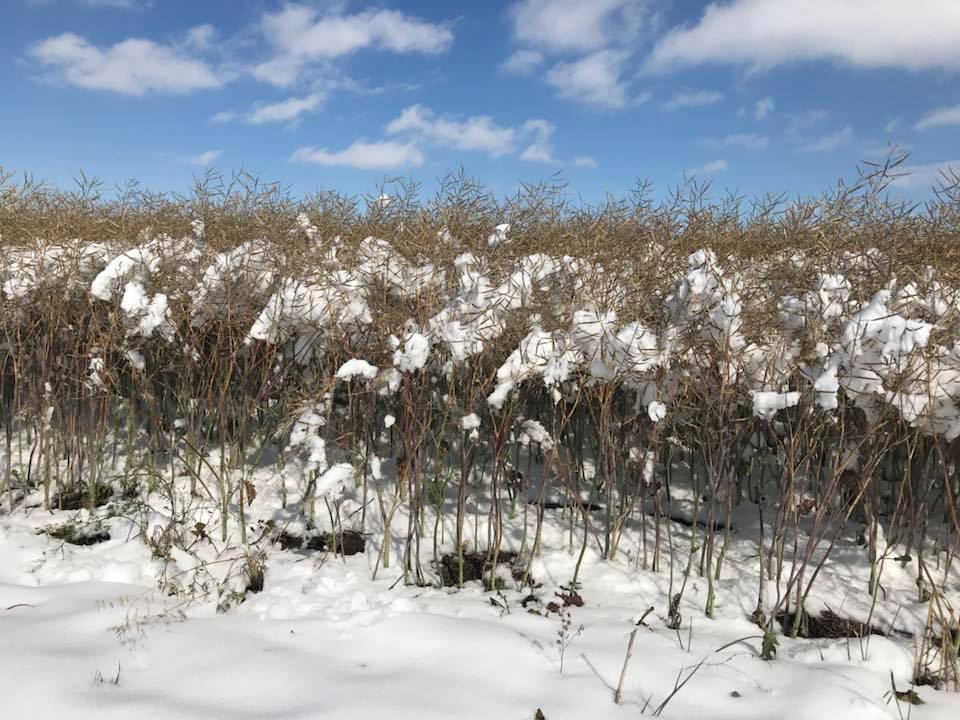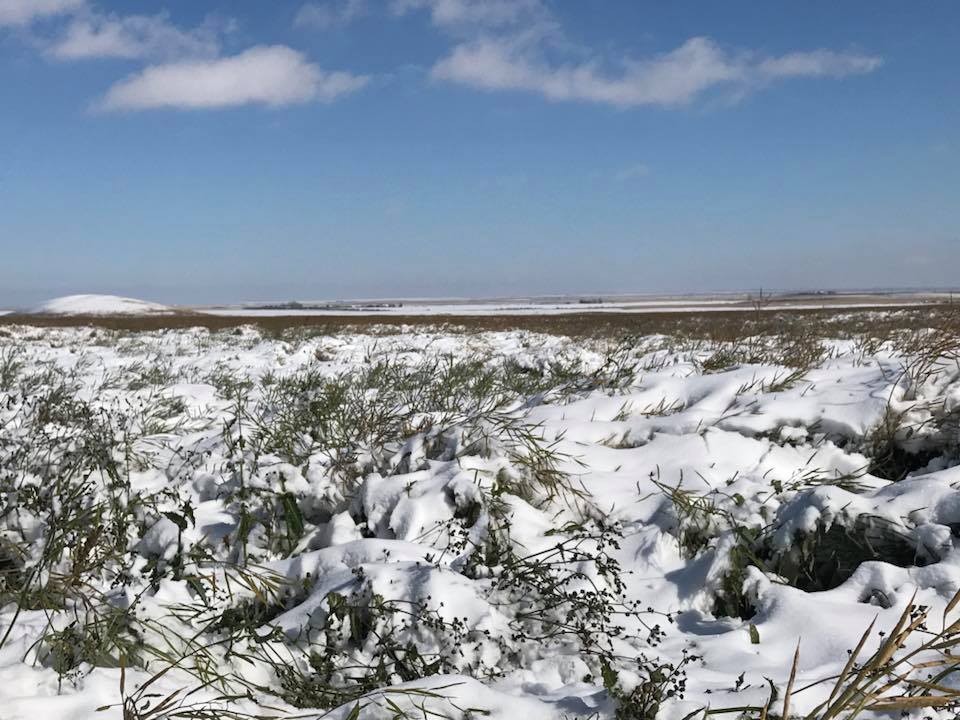Gary Flitton of southern Alberta’s Twin Valley Farms has been involved with agriculture for most of his life, and he says the 2018 harvest is proving to be one for the record books.

“I think this will be a new one (record) as far as dismal for a five-week period that we haven’t been able to do anything,” he says. “So I think this one is kind of new ground for me in just about 50 years of farming.”
About half of the 12,000 acres that Twin Valley Farms produces still needs to be combined, and they aren’t alone.
Tom Steve, the general manager with the Alberta Wheat and Alberta Barley commissions, says this year farmers are significantly behind.
“Most farmers have made very little progress in the last three weeks, so many are getting concerned [about] how harvest might unfold in October,” he says.
View photos of snowy conditions in southern Alberta in the gallery below:
There are several crop varieties that remain unharvested across the province, but canola is the crop where most of the acres are left to combine.
Autumn Barnes with the Canola Council of Canada says conditions get worse to the north.
Flitton is in the same situation. Most of his canola hasn’t been combined. He added that when the weather changes, his family operation will be ready to cover as much ground as they can and as quickly as they can.

Get weekly money news
“We’ve ordered a grain dryer to try and mitigate some of the risks and give us better options and take the crop off tougher than we normally would,” he says.
Flitton also says they are renting an additional combine, going from three up to four.
Steve adds that the wet conditions in southern Alberta which are impacting harvest started a few weeks ago and that the snow just piled on to the challenges farmers have already faced this year.
He says most areas suffered from drought and the air quality because of forest fires, which has also slowed down crop growth.
“Forest fire smoke has probably delayed maturity by up to two weeks,” he says. “So that is a concern as well.
“We have a bit of a perfect storm going on.”
Flitton and other farmers are now waiting to see if Mother Nature will give them a break, before it’s too late.
“We can still get a break in the weather,” he says. “That will hopefully make us forget this five-week period we’ve had, but that’s Alberta, that’s the weather and that’s farming.”












Comments